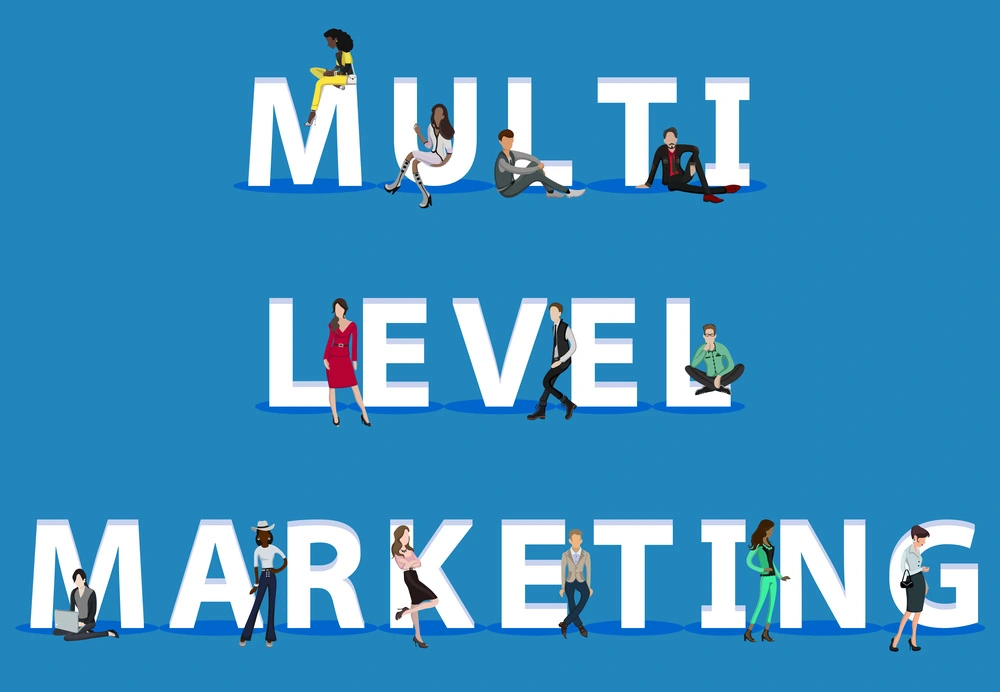In the realm of business and entrepreneurship, Multi-Level Marketing education as a unique and often misunderstood model. With its promise of financial freedom and flexible work schedules, MLM has garnered both fervent supporters and staunch critics.
However, at its core lies the potential for individuals to build successful businesses through networking, selling products, and recruiting others into their network.
This introduction delves into the world of Multi-Level Marketing education, exploring the importance of understanding this business model, the opportunities it presents, and the skills necessary to thrive in this dynamic industry.
Understanding Multi-Level Marketing

Multi-Level Marketing education, also known as network marketing or direct selling, is a business model that relies on a network of independent distributors to sell products or services directly to consumers.
In this model, distributors earn commissions not only from their own sales but also from the sales of the distributors they recruit into their downline. This hierarchical structure creates multiple levels of compensation, hence the name “multi-level marketing.”
At its core, MLM revolves around the concept of leveraging personal networks and relationships to drive sales and expand the distributor’s network. Distributors often host home parties, product demonstrations, or utilize social media platforms to promote products and recruit new distributors.
While Multi-Level Marketing education the potential for individuals to build their own business with low startup costs and flexible schedules, it has also been criticized for resembling pyramid schemes, where the emphasis is more on recruitment than product sales. However, legitimate MLM companies operate within legal boundaries and focus on selling tangible products or services to end consumers.
Understanding the nuances of the MLM business model is crucial for individuals considering participation in MLM opportunities. It involves discerning between reputable companies with genuine products and those engaging in deceptive practices. By gaining insight into the structure, principles, and potential pitfalls of MLM, individuals can make informed decisions about their involvement in this industry.
Infinity Multi Level Marketing
Importance of Multi-Level Marketing education
Multi-Level Marketing education plays a pivotal role in empowering individuals with the knowledge and skills necessary to navigate the complexities of this dynamic industry. Understanding the principles, practices, and ethical considerations of MLM is essential for both aspiring entrepreneurs and consumers. Several key reasons highlight the significance of MLM education:
-
Informed Decision-Making:
Multi-Level Marketing education equips individuals with the information needed to make informed decisions about participating in MLM opportunities. By understanding the structure, risks, and potential rewards of MLM, individuals can assess whether it aligns with their goals and values before committing their time and resources.
-
Protection Against Scams:
Multi-Level Marketing education helps individuals distinguish legitimate MLM companies from fraudulent schemes or pyramid schemes. Armed with knowledge about red flags and warning signs, individuals can avoid falling victim to deceptive practices and protect themselves from financial losses.
-
Skill Development:
Multi-Level Marketing education fosters the development of essential skills such as sales and marketing, networking, communication, and business management. These skills are transferable and valuable in various professional contexts, contributing to personal and professional growth regardless of one’s involvement in MLM.
-
Ethical Considerations:
Multi-Level Marketing education emphasizes the importance of ethical conduct and compliance with industry regulations. By promoting honesty, integrity, and transparency in business practices, MLM education cultivates a culture of trust and credibility within the MLM community, safeguarding the reputation of the industry as a whole.
-
Empowerment and Entrepreneurship:
Multi-Level Marketing education empowers individuals to take control of their financial futures and pursue entrepreneurial endeavors. Through training programs, resources, and mentorship opportunities, individuals can acquire the knowledge and confidence needed to succeed as independent distributors or business owners within the MLM industry.
In essence, Multi-Level Marketing education serves as a valuable tool for individuals seeking to engage with MLM opportunities responsibly and ethically.
By fostering informed decision-making, protecting against scams, promoting skill development, emphasizing ethical considerations, and empowering entrepreneurship, MLM education paves the way for individuals to achieve success and fulfillment in the ever-evolving landscape of multi-level marketing.
Weight Loss Multi Level Marketing
Key Components of Multi-Level Marketing education

- Sales and Marketing Skills:
- Understanding the principles of salesmanship and effective marketing strategies.
- Learning how to identify target markets, create compelling sales pitches, and overcome objections.
- Developing skills in product presentation, persuasive communication, and relationship building to drive sales.
- Networking and Relationship Building:
- Mastering the art of networking and expanding one’s circle of influence.
- Building strong relationships with customers, team members, and mentors within the MLM community.
- Leveraging social networks, events, and online platforms to connect with potential prospects and recruit new distributors.
- Product Knowledge and Brand Representation:
- Acquiring in-depth knowledge about the products or services offered by the MLM company.
- Understanding the unique selling points, features, and benefits of the products to effectively communicate their value to customers.
- Serving as a brand ambassador and representing the company’s values, mission, and quality standards with integrity and enthusiasm.
- Financial Literacy and Business Management:
- Developing basic financial literacy skills to manage income, expenses, and budgeting effectively.
- Understanding the compensation plan and payout structure of the MLM company.
- Learning essential business management principles such as goal setting, time management, and organizational skills to run a successful MLM business.
- Ethical Considerations and Compliance:
- Emphasizing ethical conduct, integrity, and compliance with industry regulations.
- Understanding the difference between legitimate MLM practices and unethical or illegal schemes.
- Promoting transparency, honesty, and fairness in all business interactions to maintain trust and credibility within the MLM community.
By focusing on these key components, Multi-Level Marketing education equips individuals with the knowledge, skills, and ethical principles necessary to succeed in the MLM industry while fostering responsible and sustainable business practices.
Resources for Multi-Level Marketing education
Training Programs and Courses:
- Online courses and training programs offered by reputable institutions or MLM companies cover various aspects of MLM, including sales techniques, product knowledge, and business management skills.
- These programs often provide structured learning modules, interactive activities, and certifications upon completion.
Books and Literature on MLM:
- A wide range of books and literature are available on MLM topics, including MLM success stories, business strategies, and personal development.
- Recommended reads include “The Business of the 21st Century” by Robert T. Kiyosaki and “Go Pro: 7 Steps to Becoming a Network Marketing Professional” by Eric Worre.
Online Webinars and Seminars:
- Webinars and seminars hosted by MLM experts, industry leaders, and training organizations offer valuable insights, tips, and strategies for success in MLM.
- These virtual events cover topics such as prospecting, recruiting, team building, and effective communication.
Mentorship and Coaching Opportunities:
- Engaging with experienced MLM professionals and industry leaders through mentorship or coaching programs provides personalized guidance, support, and feedback.
- Mentorship opportunities may be offered within MLM companies or through independent MLM training organizations.
Industry Associations and Organizations:
- Joining MLM industry associations and organizations such as the Direct Selling Association (DSA) provides access to educational resources, networking opportunities, and industry insights.
- These associations often offer seminars, workshops, and conferences focused on MLM education and professional development.
Online Communities and Forums:
- Participating in online communities, forums, and social media groups dedicated to MLM allows individuals to connect with like-minded professionals, share experiences, and learn from others.
- Platforms such as Reddit’s r/MLMRecovery and MLM.com’s forum provide forums for discussion, support, and knowledge sharing within the MLM community.
By leveraging these resources, individuals can access comprehensive Multi-Level Marketing education to enhance their skills, knowledge, and success in the MLM industry.
Multi-Level Marketing Affiliate Program: Comprehensive Guide
Ethical Considerations in MLM

- Transparency and Disclosure:
- MLM companies should provide clear and accurate information about their products, compensation plans, and business opportunities to potential distributors.
- Disclosures about potential risks, earnings potential, and requirements for success should be transparently communicated to avoid misleading or deceptive practices.
- Honesty and Integrity:
- Distributors should promote products and opportunities with honesty and integrity, refraining from making exaggerated income claims or false promises of success.
- Misrepresentation of products or business opportunities can damage trust and credibility within the MLM community and lead to legal repercussions.
- Respect for Others:
- MLM distributors should respect the autonomy and decisions of potential recruits and customers, avoiding coercive or manipulative tactics in recruitment and sales efforts.
- Pressure tactics or exploitation of personal relationships for recruitment purposes can strain relationships and tarnish the reputation of the MLM industry.
- Compliance with Laws and Regulations:
- MLM companies and distributors must adhere to applicable laws and regulations governing the direct selling industry, including consumer protection laws, pyramid scheme regulations, and advertising standards.
- Compliance with legal requirements ensures the legitimacy and sustainability of MLM businesses while protecting distributors and consumers from fraudulent practices.
- Focus on Product Value:
- MLM companies should prioritize the sale of genuine, high-quality products or services that provide value to consumers.
- Distributors should focus on promoting product benefits and features rather than solely emphasizing recruitment incentives, ensuring that customers derive genuine value from their purchases.
- Support and Training:
- MLM companies have a responsibility to provide adequate support, training, and resources to help distributors succeed ethically and responsibly.
- Training programs should emphasize ethical conduct, compliance with company policies and industry regulations, and strategies for building sustainable businesses.
By upholding ethical principles and practices, MLM companies and distributors contribute to the integrity and credibility of the industry while fostering trust and confidence among consumers and stakeholders. Ethical considerations play a crucial role in promoting long-term success and sustainability in Multi-Level Marketing.
Conclusion
In conclusion, Multi-Level Marketing education serves as a cornerstone for individuals navigating the complexities of the MLM industry.
By providing comprehensive knowledge, practical skills, and ethical guidance, Multi-Level Marketing education empowers individuals to make informed decisions, build successful businesses, and uphold integrity within the MLM community.
Through understanding the nuances of the MLM business model, developing essential sales and marketing skills, and embracing ethical considerations, individuals can embark on their MLM journey with confidence and clarity.
As the MLM landscape continues to evolve, ongoing education and commitment to ethical conduct remain essential for achieving long-term success and sustainability in this dynamic industry.
Ultimately, Multi-Level Marketing education paves the way for individuals to unlock their potential, fulfill their entrepreneurial aspirations, and thrive in the world of network marketing.
Other Questions
- Why is Multi-Level Marketing education important?
MLM education empowers individuals with knowledge and skills to navigate the MLM industry responsibly and ethically.
- What are some key components of MLM education?
Sales and marketing skills, networking, product knowledge, financial literacy, and ethical considerations.
- What resources are available for MLM education?
Training programs, books, online webinars, mentorship opportunities, and industry associations.
- What are some ethical considerations in MLM?
Transparency, honesty, respect for others, compliance with laws, focus on product value, and support and training.




